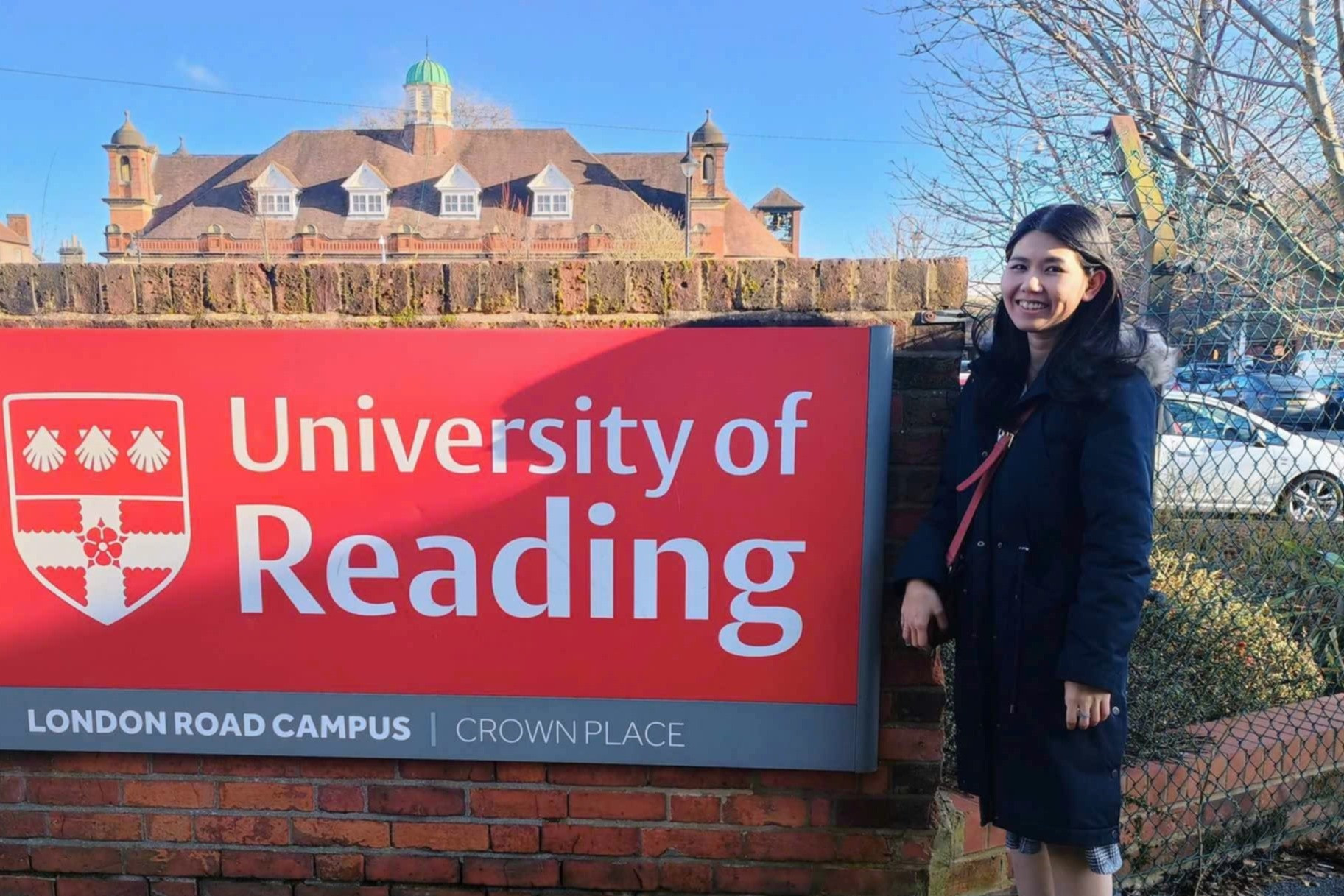
Born in 1996, Ha Dang Nhu Quynh is currently a PhD candidate at the University of Reading, UK. Last January, she took the IELTS exam and achieved a perfect 9.0/9.0 score, a rare accomplishment among Vietnamese.
Quynh was a literature major student at the High School for the Gifted under the HCM City National University. With a passion for writing stories, Quynh once dreamed of publishing her own book. Though she is a daydreamer, she describes herself as a logical and independent person.
The literature enthusiast opted for both Computer Science and English Education for her university education. Encouraged by her family, she ultimately chose teaching.
"Initially, I focused solely on grammar lessons and vocabulary. Later, I realized the importance of communication in English both in life and work, leading me to 'restart' with this subject," Quynh explained.
After excelling in English Education, Quynh pursued a master's in English teaching at the University of Nottingham, UK, to further hone her English teaching skills.
She first scored an 8.5 in IELTS during her third university year. Four years ago, she took the exam again and again had an 8.5 score. According to Quynh, improving from 8.5 to 9.0 is challenging despite the short gap.
"Scoring 8.5 means achieving high language proficiency. Many people don’t understand what they still need to do to get 9,” she said
After a period of teaching English, Quynh retook the IELTS to assess her skill retention and challenge herself to aim for a perfect score.
For Quynh, Reading Comprehensive is the easiest part of the exam. Confident in her Reading skills, she applied the Linearthinking method (thought-based learning) to deepen understanding and enhance logical thinking using mathematical concepts like simplification and connection.
This approach enables candidates to filter primary information, simplify complex texts, and stay focused without being distracted by unnecessary details, according to Quynh.
Quynh viewed Writing as the most challenging skill. She got only 7.5 for the last two attempts. "My biggest mistake was that I just focused on upgrading language skills, neglecting the importance of ideas," she admitted.
Quynh had gathered strength to polish her words and grammar, but her ideas were sketchy, general and abstract. This time, Quynh supplemented each argument with specific examples and evidence, scoring 8.5 in Writing.
In Speaking, Quynh also changed her strategies. Instead of big words and unfamiliar idioms, she aimed for natural, expressive communication, using similes and metaphors. Like in Writing, Quynh emphasized specific examples, thus creating the opportunities to use her rich vocabulary in themes.
Her only regret was in Listening, where her score dropped from 9.0 to 8.5 due to a momentary lapse in concentration on two questions.
Nonetheless, Quynh still achieved the expected overall 9.0 score by refining her English learning approaches.
At high school, she primarily accumulated vocabulary and focused on grammar rules. But she has recently adopted a thought-based learning approach. “To master English, learners need methods aligned with cognitive function and memory processes,” Quynh said.
The young teacher noted that many people tend to gather strength on trying solving tests to be familiar with test structure, hoping for tips to quickly boost scores. However, she advised that examinees should only do mock tests in the final IELTS preparation phase. The most important thing they should do is enhance foundational knowledge.
She stressed that IELTS aims at fundamentally assessing one's language proficiency, meaning shortcuts won't magically boost scores. "The only way to improve is through consistent effort and a learning method that suits you," Quynh advises.
After achieving a perfect 9.0 in IELTS, the 29-year-old plans to focus on completing her doctoral thesis at the University of Reading in the UK, while refining her teaching techniques and investing further in English instruction.
Thuy Nga